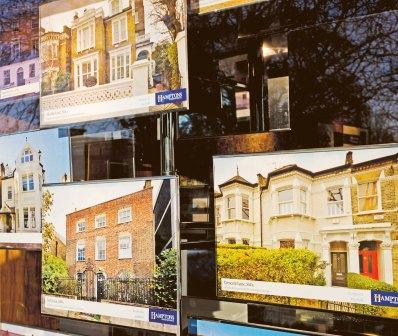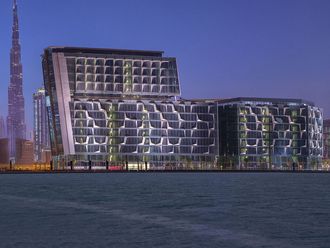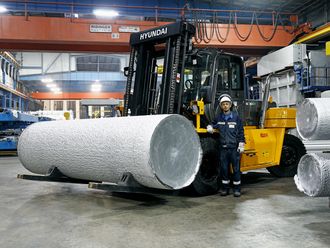
The average price of a home in Britain will jump by a quarter in five years to reach a record figure of nearly £280,000 (about Dh1.7 million). And taking advantage of the boom are Middle Eastern property buyers. UAE citizens in particular are top buyers, according to real estate agents.
According to research by BNP Paribas Real Estate foreign investors were behind a record 82 per cent of real estate transactions in London alone in the first six months of 2013 to the value of £4.15 billion. It suggests international buyers accounted for three-quarters of commercial transactions amounting to £5.5 billion in central London during that time.
Some of these properties are being bought by Emirati citizens, say estate agents.
“After the French and the Russians, Emirati buyers are Lichfields’ third-most popular buyers in prime central London,” says Ed Tryon, director of the buying agent Lichfields, a specialist in central London properties.
He adds: “My experience is that Emirati buyers frequently turn to service apartments such as The Knightsbridge when purchasing property in London. Security is key, and most cash-rich Gulf residents we deal with look for properties with excellent leisure facilities, high-quality finish, sophisticated technology and all the latest gadgetry.”
In London, prices will rise even higher, from £395,000 to- day to £566,000 in 2018, according to the Centre for Economics and Business Research or CEBR, the Daily Mail reported.
But even as overseas buyers rush into London and the UK, experts warn that young people are being frozen off the property ladder by crippling home ownership costs at a time when the average full-time salary is £26,500.
Many also feel the government’s controversial Help to Buy scheme will exacerbate the trend. To be launched in days, the scheme enables people to buy a home for up to £600,000 with a deposit of only 5 per cent, with the government providing a guarantee to the lender of up to 15 per cent of the loan.
Banking analyst Sandy Chen from securities firm Cenkos says the scheme is “not only daft, but dangerous”, adding, “it is a near certainty” that house prices will be pushed up.
However, Daniel Solomon, an economist at CEBR, insists the scheme is not fuelling a housing bubble. “Government support and an improving economic climate will provide an invigorating shot in the arm for the housing market over the coming years,” he told the Daily Mail. “This is not a case of houses being built on the sand. The housing market recovery we are seeing rests on firm economic and demographic foundations for now. Talk of a house price bubble is premature.”
It’s being predicted that as well as the capital, the regions will also benefit, with a predicted rise in the East of 27 per cent to an average of £311,000 and a jump of £20,000 in the North East to an average price of £160,000.
This is in line with a wider trend. If Middle Eastern buying patterns are anything to go by, areas such as Surrey are also gaining.
The St George’s Hill development in Surrey, the first gated community in the UK, has seen prices increase by 5.6 per cent in the last year alone, says Edward Heaton of the buying agency Heaton and Partners. He says his company website currently gets more hits from the Middle East than anywhere else. “Middle Eastern money is starting to ripple out to the countryside as buyers recognise the value for money, which can be achieved out of prime central London enclaves,” he says.
— Special to GN Focus/ With input from the Daily Mail












